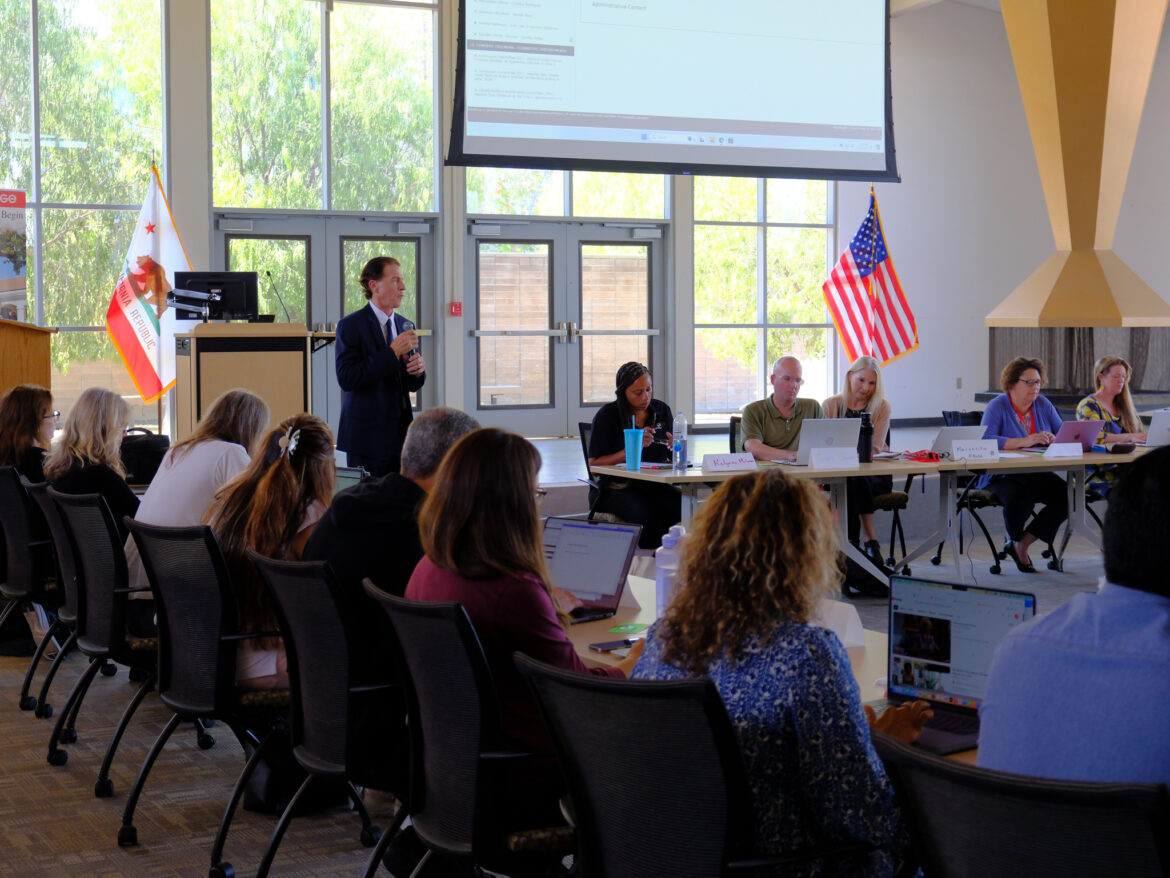Pierce College Vice President of Administrative Services Rolf Schleicher discussed his focus on the facilities master plan and dealing with budget cuts at the Academic Senate meeting on Sept. 23 in Building 600.
Schleicher addressed the college community about the ongoing process of revamping the facilities master plan, recounting having done these exercises multiple times.
“This time we’re doing it with a different approach, more centered around the students,” Schleicher said. “We’re trying to bring an atmosphere where the pedestrian traffic is really engaged. We’re also looking at our transportation, and those transportations that can help serve the campus better.”
Schleicher talked about the importance of how the college uses its properties. He pointed out that many facilities are being underused, and said that increasing their use is a long-term goal.
”Each property needs to look at how to maximize performance,” Schleicher said. “We’ve been asking for this for years, and we’re happy to finally move forward with these plans.”
Schleicher also highlighted the importance of having representation on the District Budget Committee (DBC).
“That representation is extremely important for us,” Schleicher said. “And again, the budget is really tight.”
He mentioned a challenge Pierce College faces with budget cuts, adding “How do you grow enrollment when you’re tightening the budget?”
Previously facing a $15 million deficit, the college now anticipates closing this year with approximately a $7 million deficit, indicating ongoing financial challenges.
Distance Education Coordinator Wendy Bass also shared her thoughts on the budget cuts Pierce has experienced and how it can have an impact on students.
“The budget cuts are awful,” Bass said. “I want to make sure we are able to offer classes so students can continue to progress toward their certificates or degrees and not be stuck waiting because the class they needed was canceled for a semester.”
Academic Senate President Margarita Pillado discussed new courses for the Academic Senate to vote on, including classes in the anthropology, computer information systems and automotive technology departments.
“These courses are part of the move that the state of California and in fact the entire nation is going into electric vehicles, pure emission vehicles,” Pillado said. “These courses provide the training for the students to learn how to service those kinds of vehicles.”
The next Academic Senate meeting will be held on Monday, Oct. 7 in Building 600.




